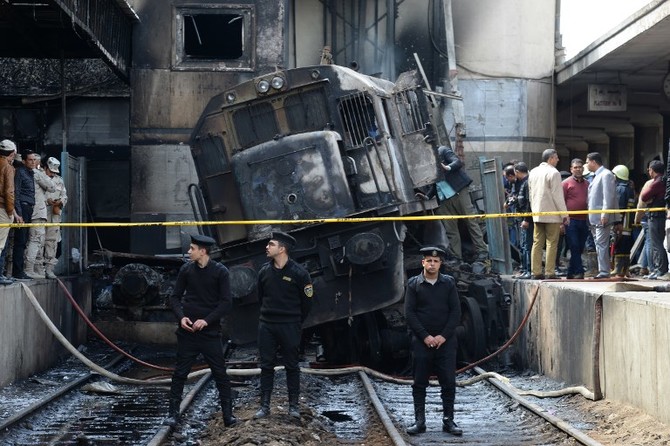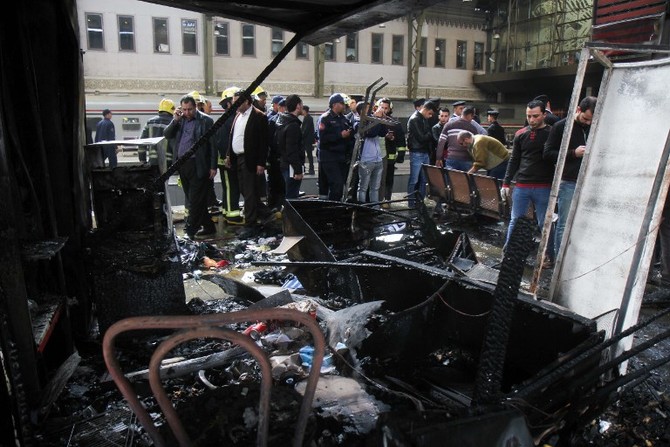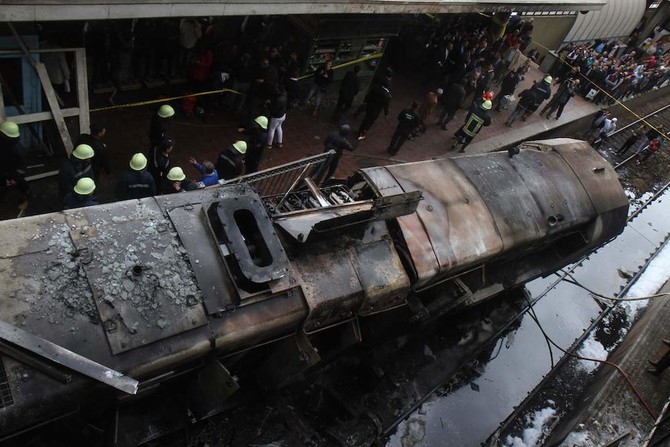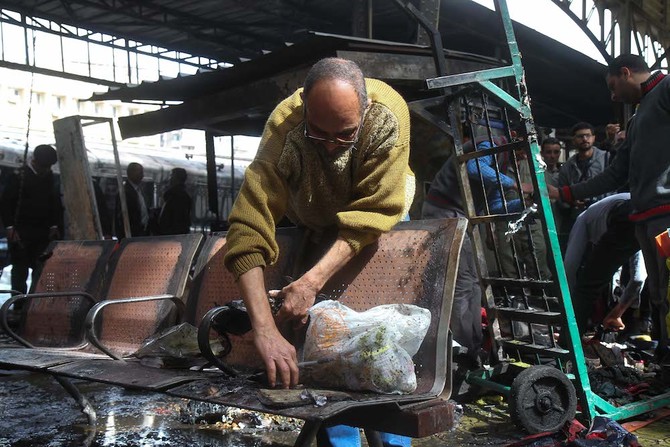CAIRO: A deadly train crash which killed at least 25 people and injured dozens more was caused by a driver leaving his vehicle unattended without turning off its engine to speak with the driver of another train, according to Egypt's prosecutor-general.
Prosecutor General Nabil Sadek issued a statement revealing the preliminary results of an investigation into the crash, saying the train involved in the deadly collision had been on its way to a train yard when it was struck by another locomotive on an adjacent train line.
The driver of the first train left it unattended without turning off its engine to speak with the other driver, who was already working on disengaging his train from another locomotive.
******
READ MORE: Egypt’s deadly record of train accidents
******
When the two trains disengaged, the now-unmanned train moved at high speed towards the railway station until it collided with a concrete barrier at the end of the train line and burst into flames.
The prosecution has tasked forensic experts with using DNA tests to identify the charred remains of the victims.
"The driver left the railcar without taking any measures to brake it," Prosecutor General Nabil Sadek said in a statement.
Health officials say at least 25 people were killed and dozens more injured in the crash and ensuing fire.
The moment a fireball ripped through Egypt’s Ramses Station as a highspeed train smashed into a metal barrier killing at least 20 people and injuring 50 on Wednesday was captured on video.
In a video released on social media commuters can be seen walking around and then moments later people are seen running for their lives as the ball of flames erupts through the air.
In a section of the video that Arab News deemed too distressing to show, a woman can be seen fleeing, her clothes and hair on fire – it is not know what happened to her.
At least 20 people were killed and dozens more injured when a train smashed into a steel barrier, erupting into a ball of flames at Ramses station in central #Cairo on Wednesdayhttps://t.co/ZEMNk9BPIC pic.twitter.com/jprwKKAMnW
— Arab News (@arabnews) February 27, 2019
Dozens of people were injured when the train smashed into a steel barrier, erupting into a ball of flames at Ramses station in central Cairo. Egypt's health ministry said the number killed was 20 but Associated Press reported that the death toll was at least 25.
Egypt’s Minister of Transport, Hesham Arafat resigned later the same day.
Social media footage showed images of people fleeing and what appeared to be burnt corpses strewn across the platform and railway track below.
Thick black smoke could be seen rising high above the area as the flames engulfed the station platform.
Video footage from Cairo's Ramses train station shows a platform engulfed in flames pic.twitter.com/AWyrSwoJrc
— Arab News (@arabnews) February 27, 2019
Egyptian Prime Minister Mostafa Madbouly arrived at the scene and pledged in a statement to reporters to investigate and hold those responsible for any negligence to account.
The transportation minister and governor of Cairo were also at the scene.
Railway operations were immediately stopped after the incident but returned to full operation at 10:42 a.m. (GMT).
Dozens of people are being treated in hospital
Security sources said there was no indication that the crash was deliberate.
Eyewitness Ibrahim Hussein said: "I saw a man pointing from the locomotive as it entered the platform, and screaming 'There are no brakes, there are no brakes’ before he jumped out of the locomotive. And I don’t know what happened to him."
Bystander Mina Ghaly added: "I was standing on the platform and I saw the train speed into the barrier ... Everyone started running but a lot of people died after the locomotive exploded.
"I saw at least nine corpses lying on the ground, charred."
Ahmed Abdeltawab said the platform had been crowded with people waiting for another train.
"The fire overwhelmed them and they ran while they were on fire until they fell metres from incident," he said. "The scene was terrifying."
Several witnesses said they had seen fire coming out of the train's engine before it crashed, causing an explosion and fires inside the station.
Student Ali Ramadan said he had suffered burns and injured his foot when he ran into a concrete bench on the crowded platform
"I don't know when these train accidents will end ... They told us they got millions of dollars' worth of new locomotives and trains, and people are still dying because of train accidents."

(With Reuters)































